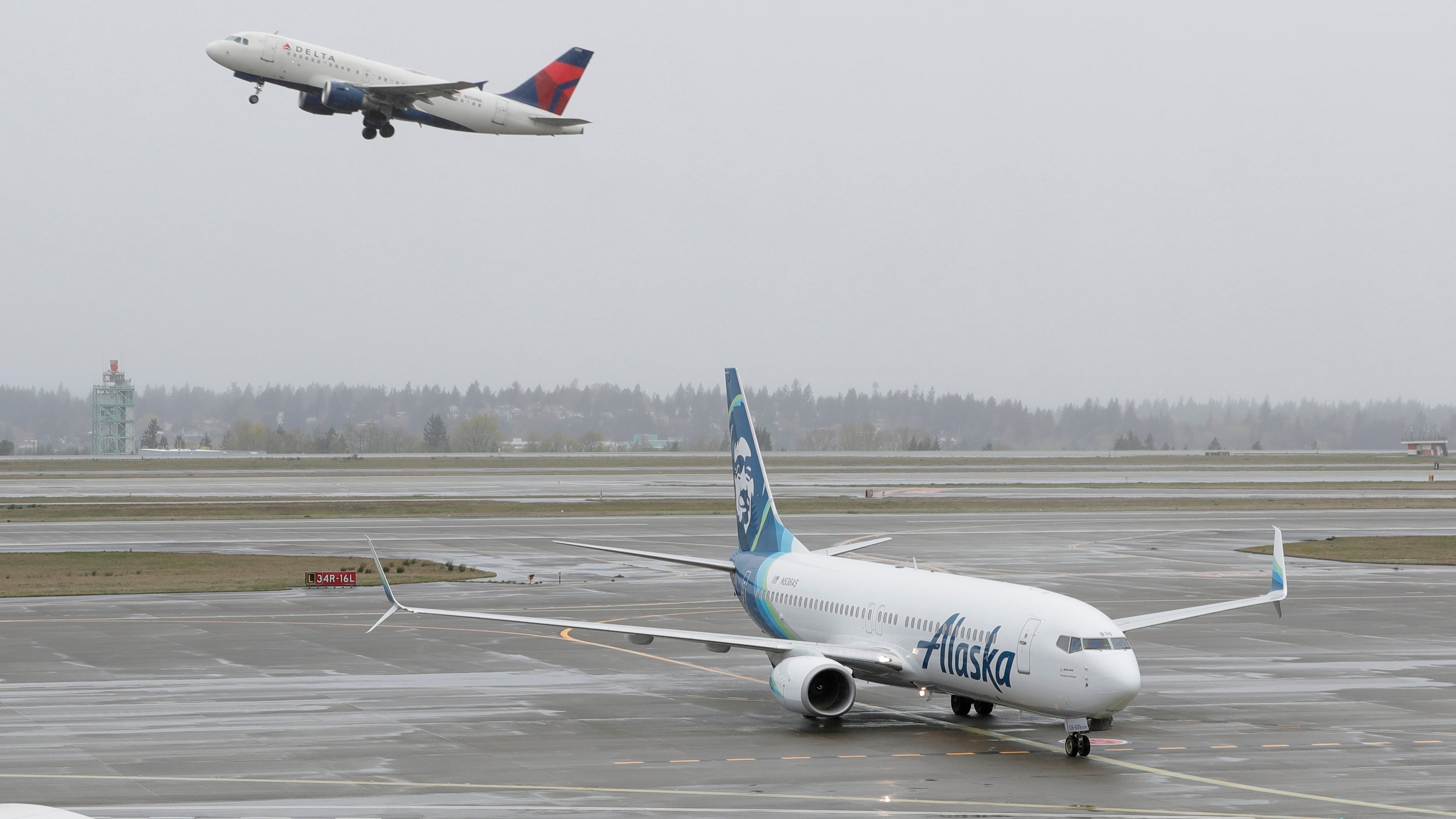Alaska Airlines subpoenas Delta over trademark dispute

More than a decade ago, Alaska Airlines and Atlanta-based Delta Air Lines were partners, marketing each other’s flights and and allowing passengers to link rewards.
But that partnership is long over, and the relationship has devolved into one of hot competition over Seattle-Tacoma International Airport: Alaska’s headquarters and Delta’s growing trans-Pacific gateway hub.
Now they’re involved in another dispute, over the “Virgin” airline brand, which both carriers have different ties to.
In 2016, Alaska acquired Virgin America, the North American counterpart to the British Virgin Atlantic carrier in which Delta owns a 49% stake.
Alaska is now subpoenaing Delta because of what it says is illegal use of the Virgin brand on U.S. domestic flights, by Delta partner Virgin Atlantic.
“Virgin Group, working closely with Delta Air Lines, has repeatedly infringed upon Alaska’s exclusive right to the Virgin trademark in the U.S. to attract customers,” an Alaska spokesperson said in a statement.
“In doing so, Virgin is harming Alaska, hindering competition, defying U.S. regulators, and enriching themselves.”
In a statement, Delta told The Atlanta Journal-Constitution, “This is a long-standing dispute between Alaska and Virgin. We believe any attempt to draw Delta in is meritless.”
A spokesperson for Virgin Atlantic referred the AJC’s questions to Virgin Group, which declined to comment.
‘Key competitor’
In 2012, then-partners Delta and Alaska trumpeted joint investments in the Seattle airport and their networks. There were even rumors at one point of a merger.
But as Alaska reported to its investors in 2017, the partnership’s revenues peaked in 2013, and Delta soon decided to directly compete with Alaska by making Seattle its own hub.
The partnership soon ended, and for the last decade the two have been in fierce competition in the Pacific Northwest.
Delta and its affiliates’ total landings at Seattle have nearly tripled since 2014.
Though Alaska carries about half of total Seattle passenger volumes, Delta has launched nearly 30 new markets from the hub in the last 10 years — and recently opened two new Sky Club lounges there.
The Virgin chapter in the relationship begins in 2019, three years after Alaska acquired Virgin America.
That’s when Alaska decided to stop using the Virgin brand, and stop paying royalties to Virgin Group, the London-based holding company founded by Richard Branson that controls the trademark.
Virgin Group took Alaska to court in the United Kingdom.
Even though Alaska wasn’t advertising “Virgin” anymore, Virgin Group argued it still owed the royalties in order to prevent others from using it.

Virgin Group won, and Alaska has been paying $10 million in royalties annually since.
But Alaska in a new U.K. lawsuit against Virgin Group, says its exclusive North American rights are being violated by U.K.-based Virgin Atlantic because, Alaska claims, Virgin is advertising Delta domestic flights for its loyalty members on its website.
Virgin Atlantic is one of Delta’s closest joint venture partners, dating back a decade.

Alaska is now subpoenaing Delta, its “key competitor,” in Atlanta federal court to try to understand how much revenue has been made from the joint marketing that Alaska argues is illegal.
For Virgin Atlantic “to woo customers onto flights operated by Delta, Alaska’s primary, aggressive, three-times-the-size, hometown competitor, is plainly unfair, unjust” and unlawful, Alaska’s filing says.
In the meantime, the Seattle competition rages on.
When Alaska in June announced its first-ever flight to Europe — to Rome, Delta announced its own new Seattle-Rome route a few weeks later.



